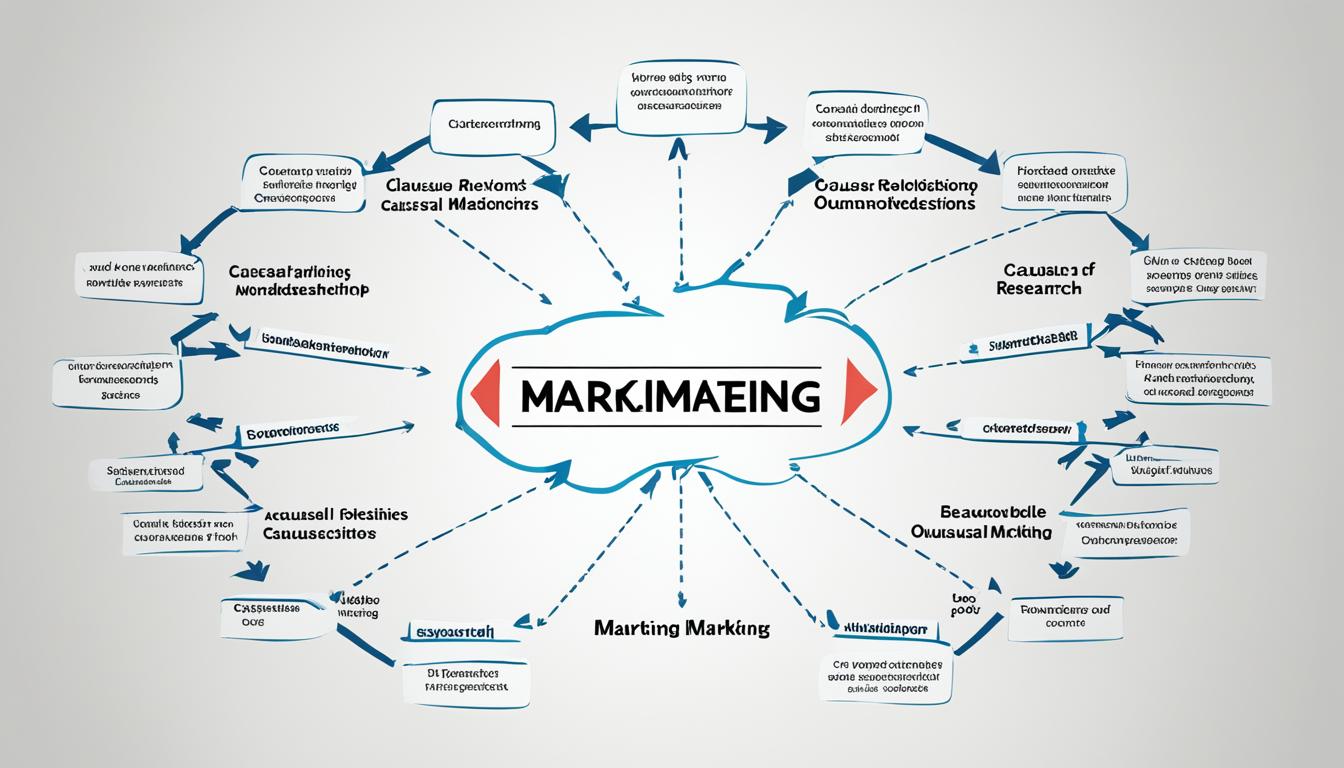A marketing engineer is a versatile professional who combines marketing strategies with technical expertise to drive business growth. In today’s digital landscape, companies need individuals who can bridge the gap between marketing objectives and technological advancements. Marketing engineers play a vital role in developing and implementing effective marketing campaigns that leverage data-driven insights and cutting-edge technology.
Marketing engineers have diverse career paths that offer opportunities for growth and specialization. From sales engineer to project engineer, account manager to consultant, marketing engineers can choose from a range of roles based on their interests and skills. Their ability to understand and apply marketing principles while incorporating technical knowledge makes them invaluable contributors to any business.
To excel as a marketing engineer, it is essential to have the right qualifications and skills. A bachelor’s degree in engineering, business, or computer science is typically required, along with skills in areas such as digital marketing, product line management, JavaScript, HTML, and API. Marketing engineers often undergo training and internships to gain practical experience and enhance their capabilities.
In this comprehensive guide, we will explore the various aspects of being a marketing engineer, including the roles, responsibilities, qualifications, required skills, and career paths. Whether you are aspiring to become a marketing engineer or interested in understanding their importance in driving business growth, this article will provide you with all the information you need.
Key Takeaways:
- A marketing engineer combines marketing strategies with technical expertise to drive business growth.
- They have diverse career paths, including sales engineer, account manager, project engineer, and more.
- Marketing engineers typically hold a bachelor’s degree in engineering, business, or computer science.
- Key skills for marketing engineers include digital marketing, product line management, JavaScript, HTML, and API.
- Training and internships are essential for gaining practical experience and enhancing skills.
Marketing Engineer Career Paths
Marketing engineers have a range of career paths to choose from based on their interests and skills. They can pursue roles such as sales engineer, where they focus on selling technical products and solutions to clients. Alternatively, they can become account managers or business development managers, responsible for maintaining relationships with clients and generating new business opportunities. Other career options include project engineer, consultant, regional sales manager, product manager, senior product marketing manager, engineering manager, or director of sales engineering. Each of these roles requires a unique set of skills and responsibilities, but all involve blending marketing strategies with technical expertise.
Below is a table summarizing these career paths:
| Career Path | Description |
|---|---|
| Sales Engineer | Focused on selling technical products and solutions to clients. |
| Account Manager | Responsible for maintaining client relationships and generating new business opportunities. |
| Business Development Manager | Drives growth by identifying new business opportunities and developing strategies. |
| Project Engineer | Coordinates and manages engineering projects from inception to completion. |
| Consultant | Provides expert advice and solutions to clients in a specific area of expertise. |
| Regional Sales Manager | Oversees sales activities in a specific region, managing a team of sales professionals. |
| Product Manager | Manages the development and marketing of a specific product or product line. |
| Senior Product Marketing Manager | Leads product marketing strategies to drive product adoption and revenue growth. |
| Engineering Manager | Manages a team of engineers and oversees engineering projects and operations. |
| Director of Sales Engineering | Provides strategic leadership and manages sales engineering teams. |
As marketing engineers progress in their careers, they can choose to specialize in one of these paths or explore various roles to diversify their skill set and broaden their industry knowledge.
Marketing Engineer Education and Qualifications
To become a marketing engineer, individuals typically need to have a relevant bachelor’s degree in fields such as engineering, business, or computer science. A bachelor’s degree provides a strong foundation in both marketing principles and technical expertise, equipping aspiring marketing engineers with the necessary knowledge and skills to excel in their roles. Some marketing engineers may choose to further enhance their qualifications by pursuing advanced degrees, such as a master’s or associate degree, to deepen their understanding of marketing strategies and gain a competitive edge in the job market.
In addition to formal education, obtaining relevant certifications can further validate a marketing engineer’s expertise and commitment to the field. One such certification is the Engineer In Training (EIT) certification, which demonstrates a marketing engineer’s technical competence and readiness for professional practice. By obtaining the EIT certification, marketing engineers can showcase their dedication to continuous learning and professional growth.
When it comes to choosing the right educational institution for marketing engineering, several top schools stand out as leaders in providing comprehensive and high-quality education in this field. Northwestern University, the University of Pennsylvania, Stanford University, Pennsylvania State University, and Columbia University in the City of New York are renowned for their marketing engineering programs. These institutions offer rigorous curricula, experienced faculty, and access to cutting-edge resources, providing students with an excellent foundation for a successful career as a marketing engineer.
By pursuing a relevant bachelor’s degree, obtaining certifications, and choosing reputable educational institutions, individuals can effectively prepare themselves for a fulfilling career as a marketing engineer.
Key Skills for Marketing Engineers
Marketing engineers require a diverse set of skills to excel in their roles. They need to be proficient in digital marketing techniques and strategies to effectively promote products and services. Additionally, skills in areas such as product line management, JavaScript, HTML, and API are crucial for leveraging technology in marketing campaigns. Marketing project management skills are also essential for overseeing and coordinating various marketing initiatives. With these skills, marketing engineers can effectively manage teams, optimize performance, conduct competitive analysis, and create impactful marketing campaigns.
Skills Breakdown
Below is a breakdown of the key skills that marketing engineers should possess:
| Skill | Description |
|---|---|
| Digital Marketing | Proficiency in various online marketing techniques, including search engine optimization (SEO), search engine marketing (SEM), social media marketing, and content marketing. |
| Product Line Management | Ability to develop and manage a portfolio of products or services, including conducting market research, defining product positioning, and overseeing product development and launch. |
| JavaScript | Knowledge of JavaScript programming language to enhance website functionality, create interactive elements, and analyze user behavior. |
| HTML | Proficiency in HTML (Hypertext Markup Language) for creating and structuring web pages, optimizing website performance, and ensuring compatibility across different devices. |
| API | Understanding of Application Programming Interfaces (APIs) to integrate systems, exchange data, and create seamless user experiences. |
| Marketing Project Management | Ability to plan, execute, and monitor marketing projects, ensuring they are completed on time, within budget, and aligned with marketing strategies and goals. |
By honing these skills, marketing engineers can effectively navigate the ever-changing digital landscape, engage target audiences, and drive business growth through innovative marketing campaigns.
Training and Internships for Marketing Engineers
Marketing engineers understand the importance of practical experience and continuous skill development. Training and internships are valuable opportunities for aspiring marketing engineers to gain hands-on experience in the field and enhance their competencies. These experiences not only provide real-world exposure but also serve as a platform for showcasing their capabilities to potential employers. Let’s explore the significance of training, internships, and on-the-job learning for aspiring marketing engineers.
On-the-Job Training: Building Proficiency
On-the-job training is a common practice for new marketing engineers to become proficient in their roles. This training period typically lasts 6 to 12 months, allowing them to acquire the specific skills and techniques required to excel in their jobs. During this time, marketing engineers familiarize themselves with the company’s processes, systems, and best practices. They work under the guidance of experienced professionals, gaining practical insights and refining their abilities.
Competency Development through Real-World Experience
Training and internships provide opportunities for marketing engineers to develop and enhance their competencies. By working on actual marketing projects, they gain a deeper understanding of market dynamics, customer behavior, and industry trends. They learn how to apply marketing principles in different scenarios, develop effective strategies, and analyze campaign performance. Real-world experience enables marketing engineers to build their skillset and develop the ability to make informed decisions.
Inclusion in Marketing Engineer Resumes
Training and internship experiences hold significant weight when it comes to creating a strong marketing engineer resume. Employers value practical experience as it demonstrates an individual’s readiness for the job and their ability to contribute to the organization. Including details of training and internship experiences in resumes helps marketing engineers differentiate themselves from other candidates and provides evidence of their practical skills.
| Benefits of Training and Internships for Marketing Engineers |
|---|
| Gain practical experience in the field |
| Enhance skills and competencies |
| Develop a deeper understanding of market dynamics |
| Learn to create effective marketing strategies |
| Analyze campaign performance and make data-driven decisions |
| Showcase readiness and capabilities to potential employers in resumes |
Training and internships are vital stepping stones for aspiring marketing engineers, enabling them to bridge the gap between theoretical knowledge and practical application. Through these experiences, they strengthen their skill set, gain insights into industry practices, and prepare themselves for successful careers in marketing engineering.
Marketing Engineer Duties and Responsibilities
Marketing engineers play a vital role in driving business growth through their combination of technical knowledge and marketing expertise. They have a wide range of duties and responsibilities that contribute to the success of marketing initiatives:
- Joint initiatives with partners: Marketing engineers collaborate with partners to develop and execute marketing strategies, leveraging the strengths of both parties for mutual benefit.
- Support for existing installations: They provide technical support and assistance to customers who have already implemented the company’s products or services, ensuring customer satisfaction and retention.
- Market trends analysis: Marketing engineers analyze market trends, monitor industry developments, and gather insights to inform marketing strategies and stay ahead of competitors.
- Technical product information: They create comprehensive technical product information, including specifications, features, and capabilities, to effectively communicate product value to potential customers.
- Application engineering: Marketing engineers facilitate the application of products in various industries by working closely with application engineers and providing technical guidance and support.
- Customer training: They conduct training sessions to educate customers on how to utilize the company’s products effectively, ensuring customer satisfaction and maximizing product utilization.
- Market research: Marketing engineers perform market research to identify target customers, understand their needs and preferences, and develop marketing campaigns that resonate with the target audience.
Marketing Engineer Duties and Responsibilities
| Responsibilities |
|---|
| Joint initiatives with partners |
| Support for existing installations |
| Market trends analysis |
| Technical product information |
| Application engineering |
| Customer training |
| Market research |
The Importance of Marketing Engineers
Marketing engineers play a crucial role in driving business growth through their blend of marketing strategies and technical expertise. By leveraging technology and data, they contribute to the success of marketing campaigns, creating innovative and effective initiatives. With their deep understanding of both marketing and technical aspects, marketing engineers enable agile and adaptive approaches within marketing teams. By utilizing their skills and insights, businesses can stay competitive in a technology-driven marketing landscape and achieve their marketing goals.
One of the key contributions of marketing engineers is their ability to leverage data and insights. They use data analysis and market research to understand customer behavior, identify trends, and make data-driven decisions that can have a significant impact on business growth. By continuously leveraging data, marketing engineers help businesses optimize their marketing strategies, target the right audience, and measure the effectiveness of their campaigns.
Marketing engineers also bring technical expertise to the table, allowing for more agile and adaptive marketing approaches. With a deep understanding of technology, they can implement and leverage the latest marketing tools and platforms to drive results. This enables businesses to quickly adapt to changing market dynamics and respond to customer needs more effectively.
Furthermore, marketing engineers are essential in building agile marketing teams. They bridge the gap between marketing and technology, facilitating collaboration and communication between different departments. Their ability to understand and communicate technical concepts to non-technical team members ensures that everyone is aligned and working towards common goals. This collaborative approach leads to more efficient and effective marketing strategies and campaigns.
Benefits of Marketing Engineers for Business Growth:
- Driving business growth through effective marketing strategies
- Leveraging data and insights to make data-driven decisions
- Implementing technology-driven marketing approaches
- Building agile and adaptive marketing teams
- Optimizing marketing campaigns for better results
In conclusion, marketing engineers are vital assets to businesses seeking to grow and succeed in today’s digital landscape. Through their unique blend of marketing strategies and technical expertise, they contribute to the achievement of marketing goals, drive business growth, and help companies stay competitive in a rapidly evolving market.
How to Become a Marketing Engineer
Becoming a marketing engineer requires a combination of education, skills development, and practical experience. To embark on this career path, follow these steps:
Educational Foundation:
Start by pursuing a relevant bachelor’s degree in areas such as engineering, business, or computer science. This will provide you with a strong foundation of knowledge in both marketing and technical concepts.
Develop Marketing Skills:
Take courses and engage in practical projects to develop specific marketing skills. This can include digital marketing techniques, product line management, JavaScript, HTML, and API knowledge. These skills will help you leverage technology in your marketing campaigns and effectively promote products and services.
Obtain Certifications:
Consider obtaining certifications such as the Engineer In Training certification to enhance your qualifications. These certifications demonstrate your expertise and commitment to the field, making you a competitive candidate in the job market.
Build a Strong Resume:
When applying for marketing engineer jobs, it is essential to have a strong resume that highlights your relevant education, skills, and experience. Tailor your resume to showcase your marketing and technical knowledge, as well as any practical experience you have gained through internships or training.
Job Search Strategies:
Utilize job boards, consult professional networks, and reach out to companies directly to discover marketing engineer job opportunities. However, be cautious of job scams and ensure you thoroughly research potential employers before applying.
By following these steps, you can position yourself for a successful career as a marketing engineer, combining your technical expertise with marketing strategies to drive business growth.
Conclusion
Marketing engineers play a crucial role in today’s business landscape, combining their marketing strategies with technical expertise to drive growth. Their diverse skill set and deep understanding of both marketing and engineering principles make them invaluable assets to companies in various industries. By utilizing their ability to manage teams, create effective marketing campaigns, and leverage technology, marketing engineers contribute to the success of marketing initiatives and, ultimately, the overall success of the business.
To become a marketing engineer, individuals need to pursue a relevant education and develop specific marketing skills. This includes obtaining a bachelor’s degree in areas such as engineering, business, or computer science, and gaining practical experience through training and internships. It is also important for aspiring marketing engineers to showcase their qualifications through a strong resume when applying for marketing engineer jobs. By following these steps, individuals can embark on a fulfilling career as a marketing engineer and make significant contributions to the field.
In summary, marketing engineers play a vital role in bridging the gap between marketing and engineering, driving business growth through their blend of technical expertise and marketing strategies. Their ability to navigate both worlds, manage teams, create impactful campaigns, and leverage technology sets them apart in the industry. As the digital landscape continues to evolve, the demand for skilled marketing engineers will only continue to grow, making it an exciting and rewarding career path for those aspiring to make an impact in the marketing field.







